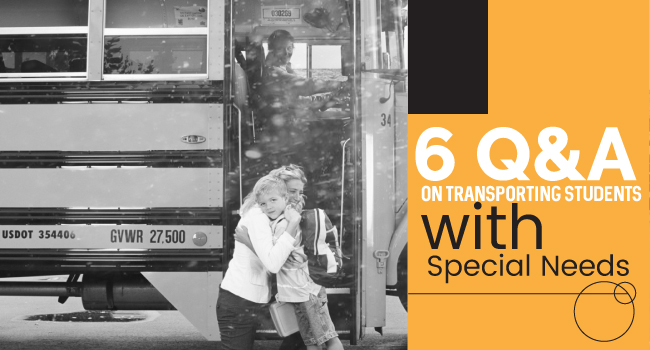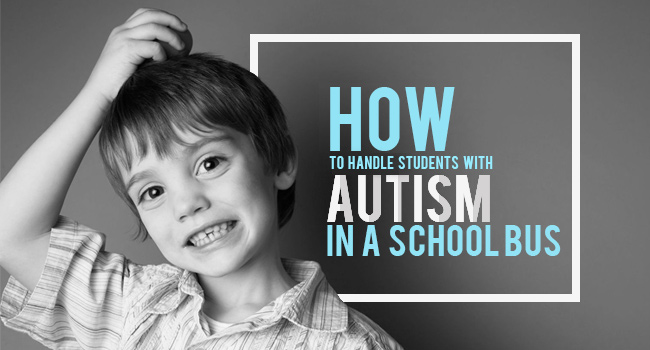Students with special needs often become side-lined in measures to ensure child safety in schools, particularly in school bus transportation. While the safety measures tend to generalize the needs of all the students under one umbrella and when efforts on safety compliance are implemented, these children receive the last loaf.
Some might be wondering if there is any justifiable need to differentiate the safety measure efforts adopted in the majority of the children and those geared for specially-challenged children.
Of course, there are several such reasons and it would be better to know a few of them in particular.
1. Do they require special provisions in the school bus?
Normally, giving special provisions can isolate the special needs children. However, if the situation warrants the need for one, like the use of a wheel chair for the physically challenged children, then it might be wise to accommodate the use of one. Support from the staff and other kids can help them to build their confidence even though they are treated differently.
2. How to teach them safety rules and regulations?
Teaching safety rules on school bus transportation requires a little effort and concern from the teachers and parents alike. Game videos and mock traffic parks might not always work for them. Teachers can instead opt to teach them simple rules customised for their learning styles and patterns. Peer learning is another tried and tested method which has proved successful in many instances.
3. How to communicate with them efficiently?
Communication is an important factor while transporting children with special needs. The tone, language and the mannerism all need to be adjusted to accommodate the physical and emotional needs of such children. For example, children with vision, hearing or cognitive difficulties might need special assistance to have the instructions clear. Talking to such children will not help in any way. The support staff should be able to connect with these children with their tone, language and behaviour. Instructions on school bus safety rules should be conveyed to these children in a simple and easy manner. Step by step instructions will prove helpful. Use images and gestures to teach and have them displayed on buses for faster communication.
4. Should staff be educated on their condition?
A simple change in approach of the staff can formulate better school bus transportation for these kids. With the help of appropriate training, communication method of school bus staff can be altered to suit the needs and connect better with them. It would be ideal for school authorities to incorporate lessons on transportation safety for children with special needs. And these lessons can also be included in the general training of drivers and support staff on traffic rules and regulations.
5. Does it require any behavioural changes from staff and other students in school bus?
Special needs children face various upsetting situations. However, the general approach of the society towards these kids is accommodating and appreciative. It would be wiser to train the staff on providing special care for such children. Apart from the school bus staff, other students should also be taught to respect and treat these children with empathy. A sympathetic or bullying attitude can disrupt their confidence levels to lead a normal life.
Maintaining eye contact with such kids make communication easier. Simply kneel down when needed to maintain eye contact and you can witness the difference. Taking a bossy attitude and having such non-verbal body cues doesn’t help you to create a satisfactory rapport with them.
6. Will it be beneficial for them to have a personal aide or help while on the ride?
Children with special needs tend to be confident when they do their chores independently. However, things differ while on a school bus. Consider, for instance, a physically challenged student seeking assistance of the driver while on the school bus. It might be nearly impossible for them to approach the driver or supporting staff on a moving vehicle. Having a personal aide in special needs school transportation is advisable in such cases. Peer support and buddies can also be utilized to overcome such situations.

